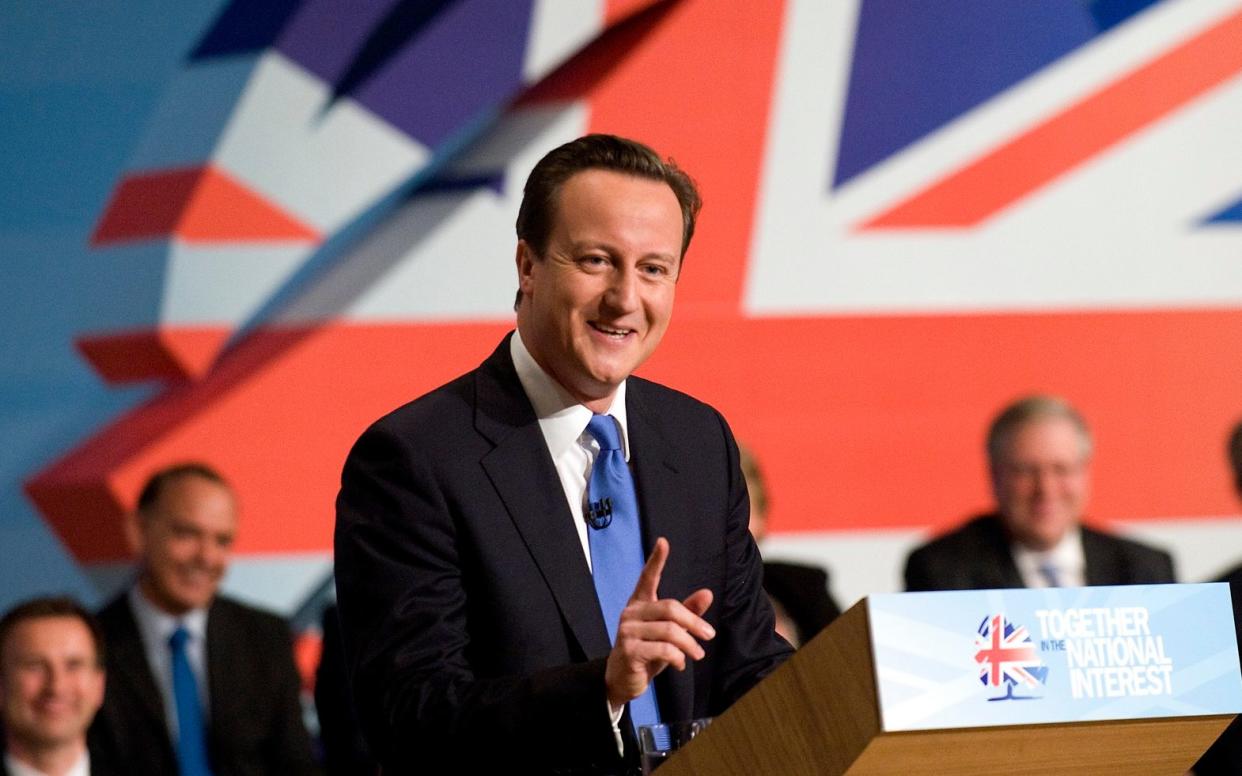Historians will look back in despair on 14 years of Tory rule

Historian David Abulafia imagines a book extract written 100 years from now reflecting on 14 years of Tory rule.
Extract from ‘Faded Blue: a History of Britain in the Early Twenty-First Century’, Parrot Books, London & New York, 2124:
Looking back a hundred years from 2124, the history of what was then known as the United Kingdom of Great Britain and Northern Ireland displays many oddities to a historian. The period from 2010 to 2024, when the Conservative party was the dominant force in politics, might better be described as the era of the Disunited Kingdom, although – ironically – incompetent devolved governments in Scotland and Wales dramatically lost their popularity and proved the need to maintain a strong Union.
It was a period of increasing polarisation in politics and society, and yet many of the troubles faced by the British government were not really of its own making. On the eve of the 2024 General Election the Prime Minster, Rishi Sunak, struggled to convince voters that politics is unpredictable and his party should not pay the price for unfulfilled ambitions – all the more so when his opponent Keir Starmer revealed unbounded confidence in his ability to run the country despite having no clear idea, or not admitting, what he wanted to achieve.
Unpredictability popped up on all fronts. The National Health Service was already in crisis, with ever-lengthening waiting lists, when the Covid pandemic arrived out of the blue in early 2020. No government, of the Left or the Right, had been prepared for such an emergency, despite warnings that were always regarded as alarmist.
It would, frankly, have been easier to deal with bubonic plague than Covid, because the origin and nature of the Covid pathogen was unclear and its trajectory uncertain. Would it progress towards ever greater potency or, as actually occurred, gradually descend to a bad cold? Fears that the NHS was on the verge of collapse were countered by turning the health service into an object of devout worship, requiring that people stand on their doorstep and clap at a pre-arranged time.
The international issue that cast a shadow over the entire period of Conservative rule was the debate about Brexit. As well as being a national issue, it was an issue that struck at the very heart of Conservative politics, as a result of pressure from enthusiastically Brexiteer movements further to the Right – Ukip and its successor, the Brexit Party, and then, after Brexit, that party’s successor, Reform UK, over all of which loomed Nigel Farage, for a time an elected member of the very European Parliament he wished to leave.
Farage’s notoriety in Eurocircles extended so far that he was excluded from some of the best restaurants in Brussels, in those days the culinary capital of northern Europe. With such pressure from the Right it is hard to see how David Cameron could not have held a referendum, for the alternative was progressive erosion by Brexiteers outside the Conservative party, and unrest among those within it, who wanted to get out of Europe.
What the public wanted when it voted in favour of Brexit is still the subject of debate among historian a hundred years after Brexit. Historians at the time, such as Robert Tombs and David Abulafia, often took a constitutionalist position, insisting that the common law traditions of the UK were incompatible with the way the EU operated, and that the sovereignty of the British Parliament was compromised by the imposition of EU regulations and by the ever-increasing powers of the European Court of Justice.
But large-scale immigration was certainly a major issue. Open borders with Europe had their attractions, and the catering industry became heavily dependent on European workers. But after leaving the EU Britain faced an exponential increase in illegal immigration aboard unseaworthy craft setting out from France, and overall numbers of legal immigrants also mounted. No one had a solution to these problems. Plans to send illegal immigrants to far-off Rwanda were scuppered by the election of 2024. On the eve of the election, Keir Starmer promised, after relentless pressure from interviewers, that he would “process” those who arrived illegally, but no one knew what that meant, most probably including himself.
Starmer knew that he could count on the support of younger voters. An uptick in the economy – lower inflation, good employment figures – in summer 2024 was no consolation to people early in their career who struggled financially, and did not, as had been hoped, increase support for the Conservatives. But for much or all of the time the Conservatives had been in power the country had been spending beyond its means.
The polarised character of British politics was brought out most clearly in the ‘culture wars’ that pitched defenders of far-Left theories, mainly ranting about endemic white racism, homophobia, transphobia and colonialist-imperialist oppression, against the tolerant, open-minded views more typical of an older generation. Hating Britain became a mantra of the activists. Even the great ancient universities of Oxford and Cambridge became suffused with radical notions that damaged their reputation as places where free speech and open debate had always been cherished.
Unfortunately the Conservative government all too often fought shy of these cultural conflicts, whose outcome would greatly affect the survival of the United Kingdom as a beacon of liberty and democracy.

 Yahoo News
Yahoo News 
